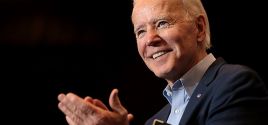Did the Free Market Burn Down the House?by Jeffrey Tucker, Mises Economics BlogOct. 06, 2010 |
Popular 
Biden Commutes Sentences of 37 of 40 Federal Death Row Inmates - Excludes Robert Bowers, Dylann Roof

Putin Accuses 'Ethnic Jews' of Tearing Russian Orthodox Church Apart

U.S. 'Shoots Down Own Jet' Over Red Sea in 'Friendly Fire Incident'

Ohio Senate Passes Bill Aimed at Outlawing Criticism of Israel, Criminalizing Gospel

Saudi National Rams Car Into Germans at Christmas Market in Suspected Terrorist Attack [UPDATED 2X]
 A strange argument emerged overnight that illustrates how little even informed people understand about the market economy and its implications. This time the debate centers on a interesting case of a man in rural Tennessee who did not pay his fire-services fee, so the fire department let his house burn down. Here is the news report. You can see that this incident is being used to attack libertarianism. National Review’s Daniel Foster jumps in to say that this is why conservatives need to curb their enthusiasm for the market economy. A colleague in the “anarcho-capitalist” camp stuck his head into Daniel’s office to explain that fire protection is not a human right, so it makes sense that the house was allowed to burn. Paul Krugman (he never goes away) adds that this is a case against the market in general. “Do you want to live in the kind of society in which this happens?” I don’t get this debate at all. It is not even a real debate. The fire-protection services were government services. The fee in question was a government-mandated fee. The county lines in which the fee was applicable is a government-drawn line that is completely arbitrary. The policy of not putting out the fire was a government policy enforced by the mayor. As he said, in the words of a good bureaucrat, “Anybody that’s not in the city of South Fulton, it’s a service we offer, either they accept it or they don’t.” So why is the market being criticized here? This was not a real market. Instead, this is precisely what we would expect from government. In a real market, there is no way that a free-enterprise fire service would have refused to provide the homeowner service. They would be in business to provide that service. The fire would have been put out and he would have been charged for the service. It is as simple as that. It is the same as lawn-mowing services or plumbing services or any other type of service. Can we know for sure that the market would provide such services? Well, if insurance companies have anything to say about it, such services would certainly be everywhere. As it was, the fire burned down as a result of government policy, a refusal of service because the homeowners did not pay what amounted to a tax! The poor homeowner begged for help and offered to pay. He had paid the year before and the year before, so his credit was good. Even so, the bureaucracy refused! (The whole thing reminds me of a scene from Gangs of New York.) A market doesn’t just mean fee-for-service. The government cannot mimic the marketplace by merely setting prices on its services. A free market means that producers are responsible to consumers in a world of private property and free exchange. Why is this so difficult to understand? Robert Murphy gets it. So does David Henderson. Salon, meanwhile, writes up the news with a picture of Hayek next to a burning house. ...Comments on Mises Blog |



